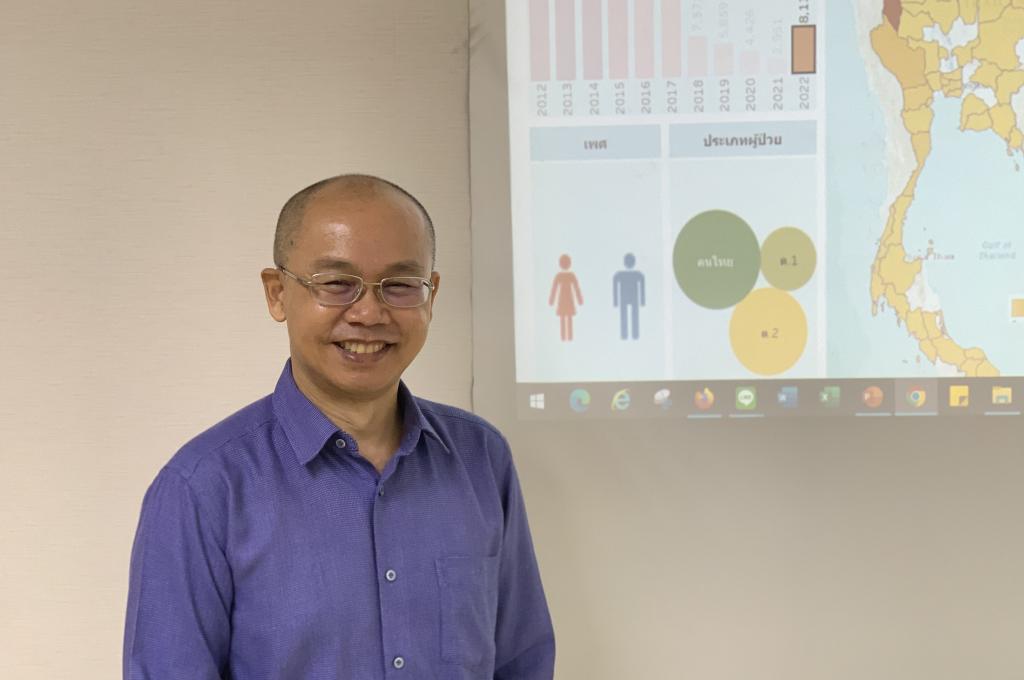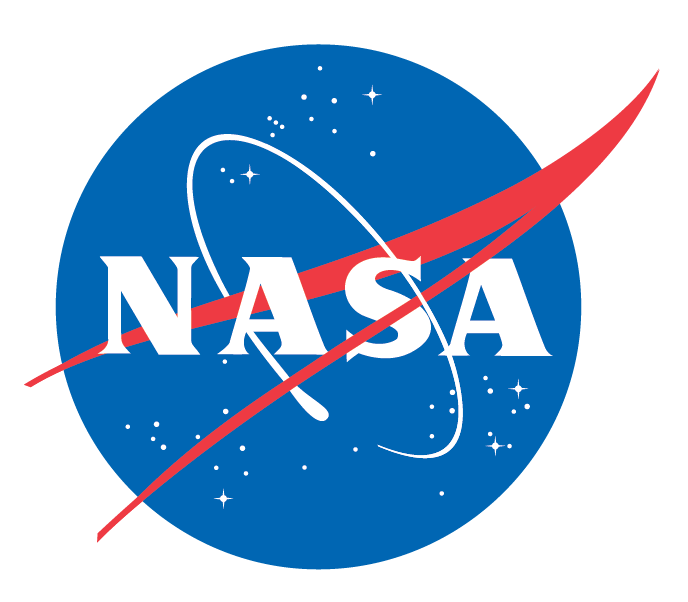SERVIR-Mekong’s Satellite-based Environmental Data Bolsters Thailand’s Efforts to Eliminate Malaria by 2024

Dr. Prayuth Sudathip, Deputy Director, Division of Vector Borne Diseases (DVBD) at Thailand’s Ministry of Public Health is on a mission to eliminate malaria by 2024 as stipulated within the government’s National Malaria Elimination Strategy.
Malaria is a life-threatening disease caused by parasites transmitted to people through the bites of infected female Anopheles mosquitoes. According to World Health Organization data in 2020, there were an estimated 241 million cases of malaria worldwide, resulting in 627,000 deaths.
In Thailand, the emergence and spread of multi-drug resistant Plasmodium falciparum malaria parasites place 16.7 million people at risk. Enhancing surveillance capabilities to monitor malaria hotspots in near-real time and understanding the role of environmental factors in the spread of the disease are critical to eliminating malaria.
Dr. Prayuth and his colleagues within the Ministry have been tackling this herculean challenge since the National Malaria Elimination Strategy came into effect in 2017. Their latest tool in this fight is the use of satellite data provided by SERVIR-Mekong and analyzed with support from USAID Inform Asia, implemented by RTI International. “For the first time in Thailand, we are using environmental data for stratification as part of our malaria elimination strategy,” says Dr. Sudathip.
Since 2021, USAID Inform Asia has partnered with SERVIR-Mekong, one of five global hubs under SERVIR - a collaboration between the United States Agency for International Development (USAID) and the National Aeronautics and Space Administration (NASA) that helps regional institutions, governments and citizens use publicly-available satellite technologies to address climate-related challenges - implemented by the Asian Disaster Preparedness Center (ADPC).
SERVIR-Mekong’s Regional Land Cover Monitoring System (RLCMS) uses satellite data and geospatial technology to provide high-quality land cover information products for7,200 local administrative units across Thailand.
SERVIR-Mekong’s contribution enabled the government to analyze the role of environmental factors such as forest cover, rainfall, urban development, and cropland in current and potential future mosquito hotspots. Periodically-updated data from the RLCMS will be made available to the government, allowing for preventive action. .
The collaboration between SERVIR-Mekong and USAID Inform Asia led to the development and launch of a decision support tool with maps and tables containing demographic, environmental, and malaria case distribution data for surveillance. “We use the environmental data for the prevention of reintroduction of malaria for areas in malaria free zones,” says Dr. Sudathip. “Should the number of cases spike, DVBD can take immediate action to provide additional support to contain the situation, or mount an outbreak response as needed.”

Image: Dr. Prayuth Sudathip (left), Deputy Director, Division of Vector Borne Diseases (DVBD) at Thailand’s Ministry of Public Health discusses malaria prevention measures with Dr. Panupong Kowsurat, Medical Physician, DVBD.
Malaria is preventable, and currently curable. The U.S. President’s Malaria Initiative plays a critical role in supporting the Royal Government of Thailand in achieving its target of eliminating malaria by 2024. Since2015, USAID Inform Asia has promoted the generation and use of evidence-based strategic information to accelerate malaria elimination. Working together with Thailand’s DVBD, Inform Asia offers expertise in health information systems, epidemiology, and communications to support surveillance and generate strategic information for elimination.
Malaria elimination is important not only to protect people's health, but to increase economic growth in the country. For every 1 THB invested in malaria elimination, Thailand’s health system, households, and economy may yield a return of up to 15 THB according to a study published in The American Society of Tropical Medicine and Hygiene by USAID, DVBD, and RTI International. “A malaria-free society is able to lead a happier, healthier, and a more fulfilling life - elimination of malaria presents opportunities for locally-led development; it encourages ecotourism, increases local incomes, and boosts local businesses,” reiterates Dr. Sudathip.
Using satellite technology and remote sensing for disease modeling and forecasting of vector-borne diseases, pandemics, and localized outbreaks has strong potential for success. This involves analyzing environmental factors and monitoring favorable conditions for the spread of disease, including identification of potential hotspots for undertaking preventive measures.
Climate change and environmental degradation can promote the spread of vector-borne and infectious diseases, and pandemics. COVID-19 has highlighted the need to integrate climate-related actions with multi sector development strategies to improve resilience to global threats. This SERVIR-USAID Inform Asia collaboration aptly illustrates the use of publicly-available satellite technologies and data to eliminate malaria and to prevent its resurgence in Thailand.



